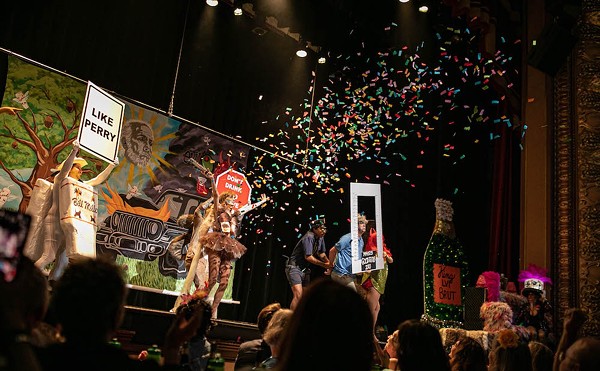|
Guest Column | |
|
The Task of Taks Throughout the state, students, teachers, and schools are preparing to grapple with the TAKS test, the Texas Assessment of Knowledge and Skills. This state-mandated standardized exam is administered to all students, with notable exceptions, from third through 11th grades in key subject areas. In addition to student assessment, the TAKS is a pivotal way for Texas to evaluate teachers, a school's status, and a district's standing. Such fundamentals as state funding and local control - and reputations - are at stake. It's no wonder that the exaltation of standardized measures is called "high stakes" testing. Most teachers and administrators welcome assessments and standards; yet to be effective, these measures must be authentic, realistic, and fair. The problem with this testing obsession is that it distorts the entire educational process, most notably the curriculum, and especially social studies, where the focus is now on the prescribed factoids students need to memorize for the TAKS. Can any standardized test serve as a valid assessment of how well students are learning to read, write, think, compute, and solve problems? A book by Peter Sacks, Standardized Minds: The High Price of America's Testing Culture and What We Can Do to Change It (Perseus Books, 2000), demonstrates that our reliance on standardized testing has taken a huge social and economic toll in our schools and colleges, and public and private enterprises. Over the last two decades, scholars, educators, and consumer advocates have criticized the inaccurate and biased instruments used to measure "intelligence," academic achievement, and special aptitudes. Their suspicions have now been confirmed by current research conducted by academics not employed by the testing industry. Sacks compiles this most recent research and summarizes in his opening chapter some of its major findings, including that "standardized tests generally have questionable ability to predict one's academic success." Yet that is the very purpose of tests such as the SAT: to predict a students' probable success in college. The best predictor of performance in the first critical year of college is a student's high school record, not the SAT score, which accounts for about 16 percent of the difference in freshmen grades. Numerous studies have discovered that a student's score on the Graduate Record Exam, required for admission or financial aid by most graduate programs, "have almost no relationship whatsoever to his or her performance in graduate school." These tests especially impact women, who generally earn higher grades than men but don't perform as well on standardized tests. More minority students would also be admitted to institutions of higher learning on the strength of their academic records alone if their test scores were discounted. Studies have shown that tests negatively affect minority students, many of whom are poor or working-class, because "standardized tests scores tend to be highly correlated with socioeconomic class." A study of California high school students has confirmed that for every $10,000 in their parents' annual income, a student is expected to score an extra 30 points on the SAT. A third major finding in current research is that, "Standardized tests reward passive, superficial learning, drive instruction in undesirable directions, and thwart meaningful educational reform." The primary result is that students use rote learning to memorize formulas and facts and instructors teach to the test. Active, creative, critical thinking - which cannot be so easily standardized and measured - becomes secondary. As parents, educators, and citizens we cannot be confused about the distinction between testing and learning. The current political climate, manifested in the No Child Left Behind Act, forces us to engage in standardized tests, but meanwhile we must advocate for more complete, fair, and authentic assessments of what our students are truly capable of learning. • ` By Julio Noboa ` |
Tags:

KEEP SA CURRENT!
Since 1986, the SA Current has served as the free, independent voice of San Antonio, and we want to keep it that way.
Becoming an SA Current Supporter for as little as $5 a month allows us to continue offering readers access to our coverage of local news, food, nightlife, events, and culture with no paywalls.
Scroll to read more Arts Stories & Interviews articles
Newsletters
Join SA Current Newsletters
Subscribe now to get the latest news delivered right to your inbox.














